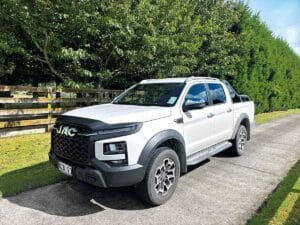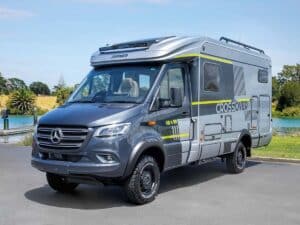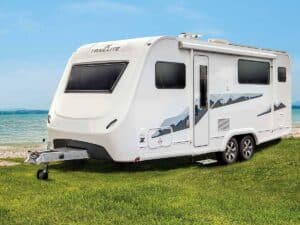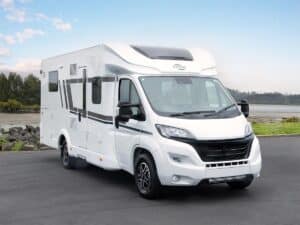Once a pivotal component of transport and farming, horses are now more often used for a very wide range of sport and recreation – racing, treking , polo, show-jumping, hunting, cross country eventing and dressage.
A traditional two-horse float is often all that is needed for many sports at the lower end of the scale but horse trucks are a good choice for the more serious pursuits.
Andrew Wright has been involed with horses throughout his panel beating career and was for six years Huntsman of the Waitemata Hunt, he then moved to Dannevirke, where he continued with the Dannevirke hunt for another six years.
In both places the sport entailed hauling at least three horses, a groom, his partner Sandra Marsden and 40 hounds (the dogs) to varying venues throughout the upper North Island. To solve transport problems, Andrew built his own horse truck with a difference. It contained accommodation in the front section of the truck and had facilities for four horses at the rear.
He constructed boxes for the 40 hounds under the tray of the truck and additional boxes for the tack and clothing necessary for the day.
This worked well, and at the end of his first hunt season as Huntsman Andrew sold the truck. He then built another for the beginning of the next season, sold it at the end, and this continued for five years.
“A mate of mine asked me to construct one for him. Although I said yes, I did not give it much thought,” says Andrew. “But three weeks after I accepted that job, I had three more to build.” That was the start of Classic Horse Coaches Ltd.
When Andrew and Sandra moved to Dannevirke they also bought some land fifteen kilometres towards the eastern hills from Takapau. After the orders started to come in for horse trucks with accommodation, Dannevirke became too small for the operation, as no satisfactory premises could be found in the town. Andrew made a decision to construct a purpose-built factory on his Takapau property where the family home was also to be located.
Since the move in 2007, the business has grown so fast that the couple have had to make extensions to the factory, which means their house plans have taken a back seat for the time being.
Classic Horse Coaches Ltd builds mainly on new truck chassis and usually constructs the complete body separate from the chassis and mounts it towards the end of the construction process. All construction is done in-house with the exception of the upholstery.
“We have five highly-skilled staff covering all aspects of manufacture including fibreglass panels, welding, cabinet making, electrics, painting and graphics, and final fit-outs,” says Andrew. “The process includes consultation with the customer on design, style, appliance fittings, and final appearance.”
All of the trucks are set up with facilities for at least three people and four to five horses. People and horses are separated by well-insulated divider walls. A full toilet/bathroom facility is included along with all of the mod-cons of a conventional motorhome.
“In the past,” says Andrew, “most of the upper end of the horse coach market came through farmers, but now there is a wider spread of customers throughout the horse community who are seeking a horse float/motorhome combination truck.” Classic Horse Coaches currently produces around nine to 10 trucks a year.
“Because we are horse people,” says Sandra, “we have a good understanding of the requirements of both horses and the people who manage them.”
For more information contact Classic Horse Coaches Ltd, ph 06 374 1726 or check them out at classichorsecoaches@xtra.co.nz

Review: JAC T9
For those passionate about adventuring with their caravan, one of the most important keys to success is a competent tow vehicle. We take a look at a newcomer to the market – the JAC T9.







